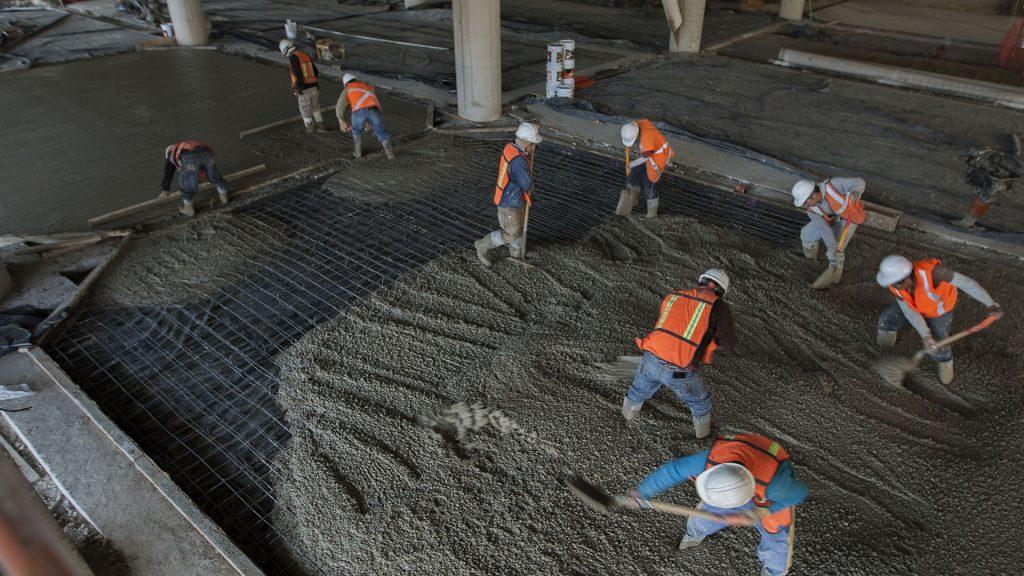Construction Chemicals: Enhancing Quality and Durability in Infrastructure Projects

Infrastructure projects have always played a pivotal role in the economic and social development of any nation. From building roads and bridges to houses and commercial structures, consistent development of infrastructure leads to improved connectivity, creation of jobs and boosts overall growth. As projects get more complex and challenging, the importance of chemicals in construction has multiplied manifold. Construction chemicals have emerged as key enablers for enhancing quality, increasing efficiency and ensuring longevity of infrastructure assets.
Role of Construction Chemicals
Construction chemicals are specifically formulated chemical formulations that are used in various construction activities like waterproofing, concrete repairing, soil stabilization etc. They include admixtures, sealants, grouts, adhesives, repair materials and surface treatment solutions. These chemicals play vital roles at different construction stages:
- During mixing and placing of concrete - Admixtures are used to improve workability, accelerate/retard setting time, increase strength and reduce permeability of concrete. Mineral and chemical admixtures enhance quality and durability of structures.
- Curing and protection of concrete – Construction chemicals membrane forming curing compounds are applied on fresh concrete to retain moisture for proper hydration. Surface applied penetrating seals protect concrete from ingress of water, chloride ions and carbon dioxide.
- Repairing and rehabilitation - Epoxy based grouts, cementitious grouts and mortars are used for repairing cracks, honeycombing and restoring the structural integrity of damaged concrete structures.
- Waterproofing and damp-proofing - Flexible cementitious and bituminous membranes, waterproof coatings and liquid applied membranes are installed to prevent ingress/egress of water in structures below/above grade.
- Protective and decorative coatings - Anti-corrosive, anti-microbial, flame-retardant and acid-proof coatings protect concrete, metal and other surfaces from external aggressions. Aesthetic architectural coatings enhance visual appeal.
Usage Areas
Construction chemicals find widespread usage across various infrastructure sectors for new construction as well as repair and rehabilitation projects:
- Buildings - Used for construction of homes, malls, offices, hospitals etc. Grouts strengthen joints in flooring, waterproofing protects basements.
- Bridges - Admixtures enhance strength of bridge elements. Epoxy coatings protect against corrosion of rebar and structural steel.
- Roads - Bituminous membranes/polymer modifiers strengthen roads and highways. Crack fillers repair cracks to prevent potholes.
- Marine Structures - Special concretes withstand aggressive marine environment. Epoxy coatings protect topside structures against splash/spray.
- Dams - Admixtures help construct mass concrete structures. Grouts seal joints and cracks to ensure water-tightness.
- Urban Infrastructure - Used in construction of flyovers, underpasses, metro rails, airports etc. Waterproofing systems extend life of assets.
Benefits of Using Construction Chemicals
Compared to conventional construction practices, use of construction chemicals provides multiple technical as well as economic advantages:
Quality: Chemical admixtures enhance several Properties of concrete like workability, strength, impermeability. Durable waterproofing protects structures.
Speed: Admixtures accelerate setting & hardening. Crack injection fastens repair. Membranes speed up waterproofing. Overall, construction chemicals reduce project timelines.
Cost Savings: Early strength concretes facilitate quick formwork removal. Thinner waterproofing lowers material usage. Fast track techniques cut shutdown costs. Overall project costs reduce.
Sustainability: High strength concrete uses less cement. Admixtures improve concrete quality. Durable coatings lower life cycle costs due to reduced repairs. Construction chemicals enhance green credentials of projects.
Enhanced Safety: Chemicals augment safety by reducing risk factors. Spray applied membranes involve less scaffolding. Stronger concrete allows thinner sections. Faster construction reduces worker exposure at sites.
Quality Assurance: Reputed suppliers provide technical support and testing standards. Third party certification gives confidence to clients on performance promises. Overall, construction chemicals professionalize quality in infrastructure sector.
With rapid urbanization and growing investments in infrastructure globally, construction chemical consumption is projected to rise significantly in coming years. Factors like increasing project complexities, demand for speedier construction, use of thicker concrete sections, legislative moves towards green buildings etc will majorly contribute to industry expansion.
Asia Pacific currently dominates the global construction chemicals owing to gigantic infrastructure plans in China, India, Southeast Asia, opportunities in waterproofing due to high rainfall and government thrust on developing smart cities. North America and Europe are also substantial. The Middle East, Africa and Latin America are emerging high potential regions. Focus on rural infrastructure, transport, water supply and low cost housing will spur chemical consumption growth.
Get more insights on this topic: https://www.newsanalyticspro.com/construction-chemicals-the-backbone-of-modern-construction-projects/
Explore more trending article on this topic: https://masstamilan.tv/business-spend-management-software-enabling-organizations-to-gain-operational-efficiencies/
- Art
- Causes
- Crafts
- Dance
- Drinks
- Film
- Fitness
- Food
- Spiele
- Gardening
- Health
- Startseite
- Literature
- Music
- Networking
- Andere
- Party
- Religion
- Shopping
- Sports
- Theater
- Wellness
- IT, Cloud, Software and Technology


